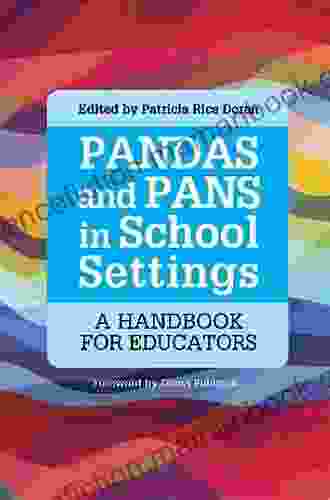Regional Identity, Schools, and Politics in Southeast Asia: A Comprehensive Analysis

Southeast Asia is a diverse region with a rich tapestry of cultures, languages, and ethnicities. Over the centuries, various factors have shaped the regional identities of its peoples, including geography, history, religion, and economic development. Education has played a pivotal role in the formation and transmission of these regional identities, and it continues to be a key factor in shaping political dynamics in the region.
4.4 out of 5
| Language | : | English |
| File size | : | 4167 KB |
| Text-to-Speech | : | Enabled |
| Screen Reader | : | Supported |
| Enhanced typesetting | : | Enabled |
| Word Wise | : | Enabled |
| Print length | : | 216 pages |
Historical Background
The concept of regional identity in Southeast Asia has its roots in the pre-colonial era. The region was home to a number of powerful kingdoms and empires, each with its own distinct culture and identity. These kingdoms often competed for control of territory and resources, and their interactions with each other shaped the development of regional identities.
The arrival of European powers in the 16th century had a profound impact on the region. The Europeans established colonies in Southeast Asia, and their rule imposed a new political and economic order on the region. This led to the emergence of new regional identities, based on shared experiences of colonialism and resistance to foreign rule.
The Role of Education in Shaping Regional Identity
Education has played a key role in the formation and transmission of regional identity in Southeast Asia. Schools have been used to teach students about their region's history, culture, and values. They have also been used to promote a sense of national unity and to prepare students for their future roles as citizens.
In many Southeast Asian countries, schools have been used to promote a particular version of regional identity that is aligned with the interests of the ruling elite. This has often led to the suppression of minority languages and cultures. However, in recent years, there has been a growing movement to promote more inclusive forms of education that celebrate the diversity of the region.
The Impact of Regional Identity on Politics
Regional identity has a significant impact on politics in Southeast Asia. It can influence political participation, policy-making, and international relations.
In some cases, regional identity can lead to political conflict. This is often the case when different regional groups compete for power or resources. For example, the conflict between the Malay and Chinese communities in Malaysia has been a source of political tension for decades.
In other cases, regional identity can lead to political cooperation. This is often the case when different regional groups share a common goal or threat. For example, the Association of Southeast Asian Nations (ASEAN) was founded in 1967 as a way to promote regional cooperation and security.
Regional identity is a complex and multifaceted phenomenon that has a significant impact on schools and politics in Southeast Asia. Education plays a key role in the formation and transmission of regional identity, and it can also be used to promote political participation, policy-making, and international relations. Understanding the relationship between regional identity, schools, and politics is essential for understanding the dynamics of the region.
References
- Anderson, Benedict R. O'G. (1991). Imagined communities: Reflections on the origin and spread of nationalism. London: Verso.
- Barr, Michael D. (2008). The peninsular Malays: A study in culture, history, and religion. Singapore: ISEAS Publishing.
- Liew, Kai Khiun. (2013). Chinese and Malays in Malaysia: A study of inter-ethnic relations and social change. Singapore: Springer.
- McVey, Ruth T. (2000). Southeast Asia in the mid-1980s: The politics of economic crisis. Armonk, NY: M.E. Sharpe.
- Thongchai Winichakul. (2000). Siam mapped: A history of the geo-body of a nation. Honolulu: University of Hawai'i Press.
4.4 out of 5
| Language | : | English |
| File size | : | 4167 KB |
| Text-to-Speech | : | Enabled |
| Screen Reader | : | Supported |
| Enhanced typesetting | : | Enabled |
| Word Wise | : | Enabled |
| Print length | : | 216 pages |
Do you want to contribute by writing guest posts on this blog?
Please contact us and send us a resume of previous articles that you have written.
 Top Book
Top Book Novel
Novel Fiction
Fiction Nonfiction
Nonfiction Literature
Literature Paperback
Paperback Hardcover
Hardcover E-book
E-book Audiobook
Audiobook Bestseller
Bestseller Classic
Classic Mystery
Mystery Thriller
Thriller Romance
Romance Fantasy
Fantasy Science Fiction
Science Fiction Biography
Biography Memoir
Memoir Autobiography
Autobiography Poetry
Poetry Drama
Drama Historical Fiction
Historical Fiction Self-help
Self-help Young Adult
Young Adult Childrens Books
Childrens Books Graphic Novel
Graphic Novel Anthology
Anthology Series
Series Encyclopedia
Encyclopedia Reference
Reference Guidebook
Guidebook Textbook
Textbook Workbook
Workbook Journal
Journal Diary
Diary Manuscript
Manuscript Folio
Folio Pulp Fiction
Pulp Fiction Short Stories
Short Stories Fairy Tales
Fairy Tales Fables
Fables Mythology
Mythology Philosophy
Philosophy Religion
Religion Spirituality
Spirituality Essays
Essays Critique
Critique Commentary
Commentary Glossary
Glossary Bibliography
Bibliography Index
Index Table of Contents
Table of Contents Preface
Preface Introduction
Introduction Foreword
Foreword Afterword
Afterword Appendices
Appendices Annotations
Annotations Footnotes
Footnotes Epilogue
Epilogue Prologue
Prologue Jonathan Hirshon
Jonathan Hirshon Patrick C Harrison Iii
Patrick C Harrison Iii Robert Fripp
Robert Fripp Lakshmi Chintaluri
Lakshmi Chintaluri Louise Sharland
Louise Sharland Anne Ro
Anne Ro Erika Meitner
Erika Meitner Keiko Kitamura
Keiko Kitamura Raven S Mind Publishing
Raven S Mind Publishing Daniel Kraus
Daniel Kraus Nicole A Taylor
Nicole A Taylor Jennifer Monroe
Jennifer Monroe Martin Heidegger
Martin Heidegger Eirik Westcoat
Eirik Westcoat Angela Franks
Angela Franks Ivy Barrett
Ivy Barrett Dan Kusnetzky
Dan Kusnetzky Dc Bourone
Dc Bourone Angela White
Angela White Michio Kaku
Michio Kaku
Light bulbAdvertise smarter! Our strategic ad space ensures maximum exposure. Reserve your spot today!

 Carlos DrummondMeditation for Beginners: A Comprehensive Guide to Cultivating Inner Peace...
Carlos DrummondMeditation for Beginners: A Comprehensive Guide to Cultivating Inner Peace...
 Elias MitchellThe Most Gripping Twisty And Dark Suspense Thriller That You Will Read In...
Elias MitchellThe Most Gripping Twisty And Dark Suspense Thriller That You Will Read In... Joseph FosterFollow ·7.9k
Joseph FosterFollow ·7.9k Mark MitchellFollow ·5.2k
Mark MitchellFollow ·5.2k Jack PowellFollow ·11.7k
Jack PowellFollow ·11.7k Harvey HughesFollow ·17.1k
Harvey HughesFollow ·17.1k Jack LondonFollow ·2.3k
Jack LondonFollow ·2.3k Nathaniel PowellFollow ·16.7k
Nathaniel PowellFollow ·16.7k Gavin MitchellFollow ·10.9k
Gavin MitchellFollow ·10.9k Manuel ButlerFollow ·12.7k
Manuel ButlerFollow ·12.7k

 Ashton Reed
Ashton ReedClean(ish) Food for People Who Like to Eat Dirty
By: [Your Name] Are...

 Ronald Simmons
Ronald SimmonsThe Handbook for Educators: A Comprehensive Guide to...
The Handbook for...

 Derrick Hughes
Derrick HughesAny Place Hang My Hat: A Hauntingly Beautiful Novel by...
A Masterpiece of...

 Adrien Blair
Adrien BlairFly Me to the Moon Vol. 5: A Lunar Odyssey through...
In the vast...

 William Powell
William PowellTips By Gardeners On Variety Of Subjects
Gardening...
4.4 out of 5
| Language | : | English |
| File size | : | 4167 KB |
| Text-to-Speech | : | Enabled |
| Screen Reader | : | Supported |
| Enhanced typesetting | : | Enabled |
| Word Wise | : | Enabled |
| Print length | : | 216 pages |










